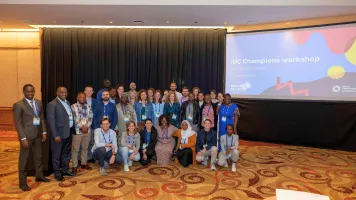Originally published by IMPACT, read the full article here.
Ensuring humanitarian response is grounded in the realities of all populations affected by crisis, requires more than just multi-sectoral analysis —it also requires an inclusive approach. Too often, the needs and priorities of marginalized communities remain overlooked in crisis response, either due to gaps in data collection, lack of capacities, methodological limitations, or the absence of dedicated frameworks for capturing their voices.
As part of their commitment to fostering a more inclusive and people-centered system, IMPACT's Inclusive Data Charter Action Plan 2024-2027 sets out concrete steps to advance inclusive data practices across humanitarian needs assessments and analysis, within IMPACT.
Through the IDC action plan, IMPACT is committing to take steps to strengthen how crisis-affected populations are included in research and data collection processes, focusing on five key areas:
- Enhancing data disaggregation to better represent all population groups in humanitarian assessments, alongside developing and piloting an intersectional analytical framework.
- Expanding participatory approaches to ensure affected populations actively shape the evidence used for decision-making. This includes implementing more inclusive household-level data collection approaches, developing guidance and toolkits for researching marginalised communities.
- Broadening data sources by integrating qualitative and perception-based research with standards needs assessments. This involves increasing affected populations’ participation in the research cycle, piloting participatory methods, and reviewing the quality and use of self-reported perception data.
- Upholding accountability and safeguarding in all data collection and analysis processes by strengthening safeguarding protocols, developing IMPACT’s Community Feedback Mechanisms SOP and toolkit, and reviewing the M&E framework.
- Building technical capacities to promote inclusive data practices across the sector through technical cooperation with coordination bodies, developing external-facing online courses, and conducting a programmatic review of partnerships with local actors.
